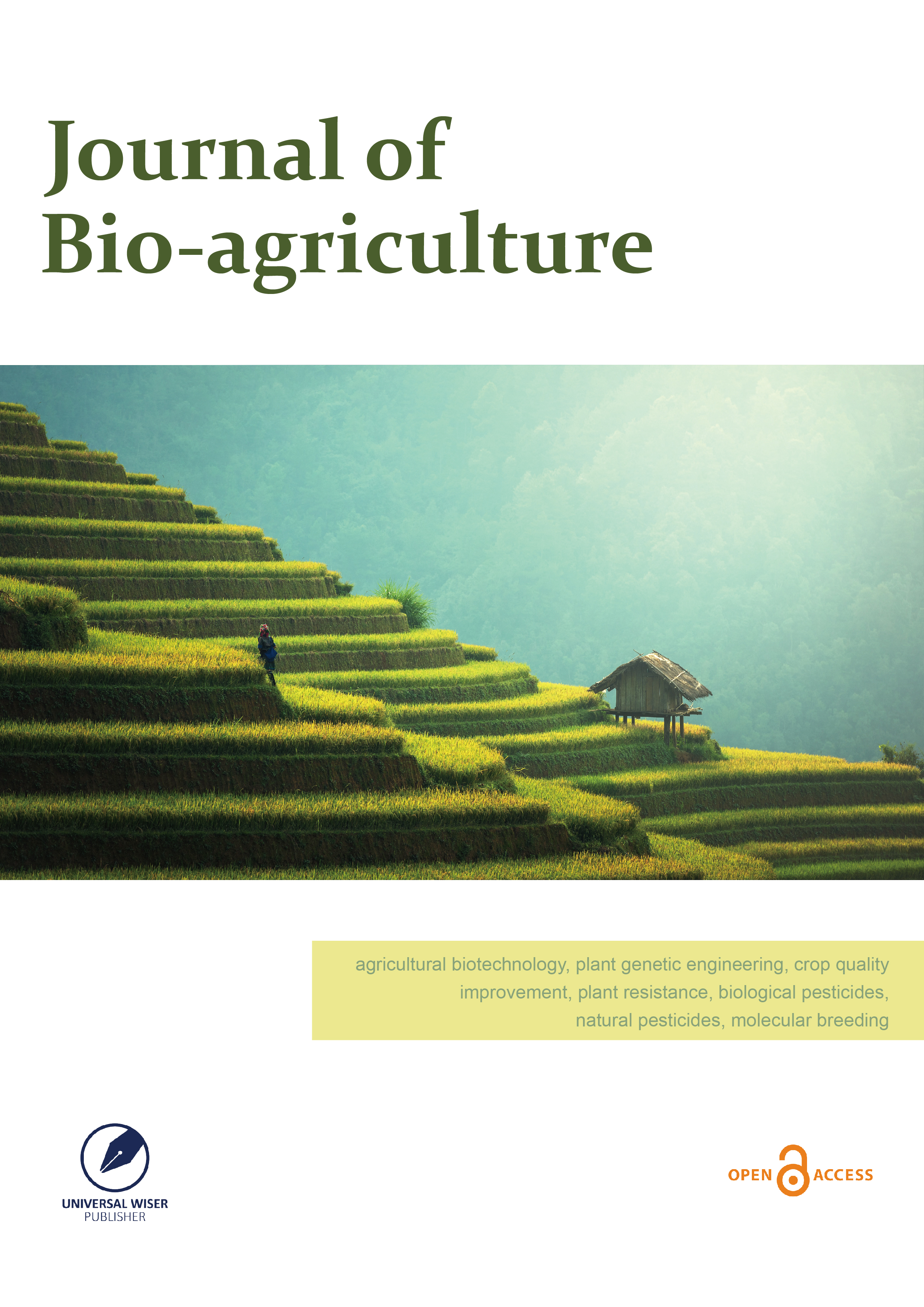Seasonal Rainfall Variability and Arable Farming within the Dry Equatorial: Evidence from the Effutu Municipality
DOI:
https://doi.org/10.37256/jba.112021501Keywords:
seasonal rainfall variation, crop yield, Dry Equatorial, Effutu, GhanaAbstract
Over the past three decades, one of the major problems that confront developing economies in Africa is the impact of climate variability on agricultural development. In the face of seasonal rainfall variation and the rain-fed nature of farming, agriculture, which is the main source of livelihood for most communities in Ghana, is threatened. The study sought to ascertain the impact of seasonal rainfall variation on arable farming within the Dry Equatorial climate of Ghana, focusing on evidence from the Effutu Municipality. Using coefficient of variation (CV) and the Precipitation Concentration Index (PCI) models, rainfall data spanning for twenty-three years obtained from the Ghana Meteorological Authority were analysed for interseasonal and interannual patterns and variability. The Pearson moment correlation coefficient was used to induce a statistical index to establish the relationship between rainfall distribution and crop yield, particularly for rice production. The findings of the study revealed a high coefficient of variation for both the major and minor rainfall seasons for the past two decades with a corresponding relatively high PCI for the period. This suggests high variability in rainfall patterns in the two seasons over the past twenty years with detection of a general decline in rainfall amounts. A moderate positive P-value for rainfall and crop yield indicates that rice production output is dependent on rainfall patterns within the Effutu Municipality. High rainfall amounts were associated with more rice outputs and vice versa. The study recommends on-farm adaptive practices such as mulching, use of drought-resistant varieties, and government-supported irrigated farming.


